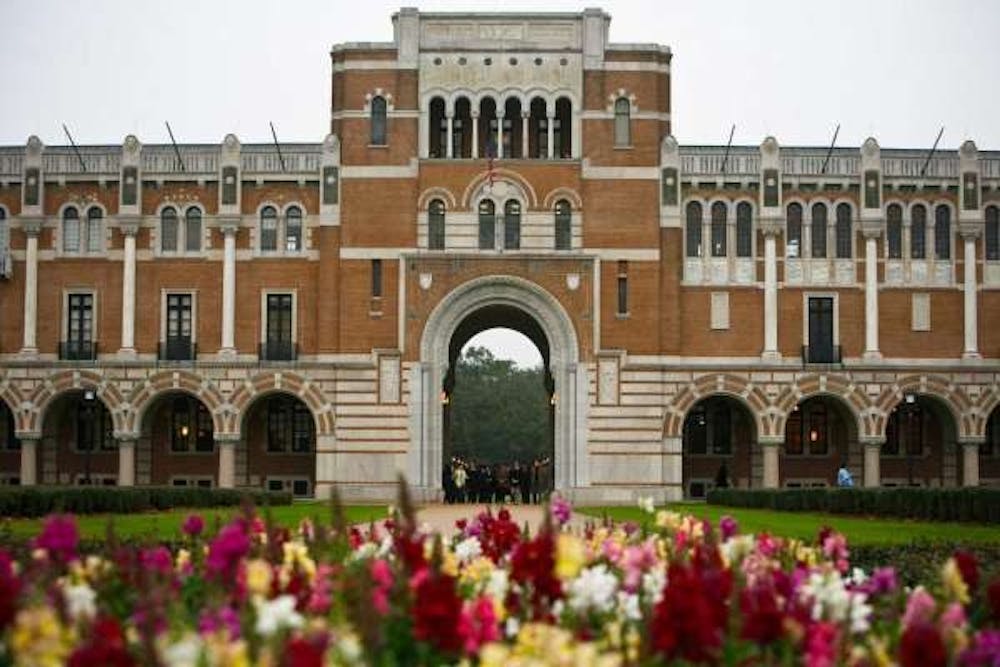Rice honor council moves online, University Court suspends operations

The honor council, which upholds one of Rice’s longest-standing systems, has been adapting to their new virtual environment for investigative meetings and hearings as a result of Rice’s response to COVID-19. University court, however, will not continue hearing cases in this remote environment.
According to the chair of honor council, Sam Holloway, the council is continuing all operations, including conducting hearings and trials. These council meetings, however, are now being conducted on Zoom, a platform most professors are using for classes.
“Our first priority is that students are not having to wait until the next academic year to get a decision back on their case,” Holloway said. “Given that Rice is continuing business as usual as [much as] possible in our remote operational context, we are doing the same thing. This is not the first time we have done things remotely.”
Emily Garza, director of Student Judicial Programs which oversees honor council operations, stated that the honor council has conducted hearings and other meetings remotely in the past, for students who were not able to be on campus but still wished for their investigation to continue before they got back to campus.
According to Garza, University Court, another program under SJP which handles disciplinary cases, is not hearing cases during the school’s closure. They will resume tasks once Rice resumes regular operations.
Garza said that the honor council will continue to carefully abide by their governing constitution that was originally written in 1912.
“While the meetings with the students are being conducted remotely, none of the procedural steps in the honor council process have changed at all,” Garza said. “Every step that is outlined in the governing documents of the honor council about how cases are handled is exactly the same now as it was when the honor council was up and functioning on campus.”
During investigative meetings, the honor council would typically show the panel and accused student all of the evidence on an iPad owned by Rice. In the remote environment, they now use Rice’s secure Box file sharing service to present the evidence to the panel.
“From an accused student perspective, they have access to all the same material they would have in person and they are interacting with the same honor council panel composition and proceedings, but just remotely,” Holloway said.
Within the two week period of online classes, the honor council has already conducted multiple remote investigative meetings. No hearings have been conducted virtually at the time of writing, although similar to the meeting, the hearings will proceed on Zoom with honor council procedures staying intact.
Garza said SJP does not expect any cases to be mishandled with operations continuing in a remote environment.
“I am completely confident in the way that the officers [of the honor council] have rallied to really ensure that the process as it existed at Rice is continuing,” Garza said. “There has been no changes to procedural steps so there is no reason why anything would be mishandled in this environment.”
The honor council said they are also addressing the potential for cheating to occur in an online environment. Izzie Karohl, external vice chair of the honor council, said she has developed guidelines for both professors and students on how to avoid misconduct in a remote environment.
“One thing I'd recommend for students is to collaborate over video platforms if possible,” Karohl said. “Sending pictures of work or code files increases the likelihood of direct copying. For professors, we recommend loosening parameters to allow for open-note, open-book exams or changing exams into other forms of assessment.”
According to Karohl, time limits on exams can help professors ensure that students have studied the material beforehand, even when the exam is open-book and open-note. If they do suspect misconduct, professors can access canvas logs to confirm their suspicions.
Karohl said many professors have allowed for flexibility for exams, such as an extended time slot to take an exam, in an effort to help students residing in different time zones or have other difficulties.
“We have to trust that, at the end of the day, Rice students won't abuse this flexibility,” Karohl said.
Holloway says that the honor council expects students to adhere to the honor policy, even as it is put on trial in this remote setting. The honor council, according to Holloway, will continue to act to support students and help make their transition easier.
“We work completely in the best interest of our fellow students,” Holloway said. “We are not out to hurt anyone or make any arbitrary or unexplainable decision. We are trying to be as open and honest as possible, now and always.”
More from The Rice Thresher

O’Rourke rallies students in Academic Quad
Former U.S. Rep. Beto O’Rourke of El Paso, Texas spoke in front of the Sallyport to a sea of sunglasses and “end gun violence” signs April 17. The rally, organized by Rice Young Democrats, took place in the academic quad from noon to 2 p.m.

Uncertainty, fear and isolation looms over international students after visa revocations
With the wave of international student visa revocations across the country, including three students at Rice and two recent graduates, international students have expressed fears that their visas will soon be terminated without warning.

All bike no beer: bikers race remaining heats without spectators
Modified Beer Bike races, dubbed “Bike Bike,” were held at the track April 18 from 5-8 p.m. Results were released by email April 21.

Please note All comments are eligible for publication by The Rice Thresher.